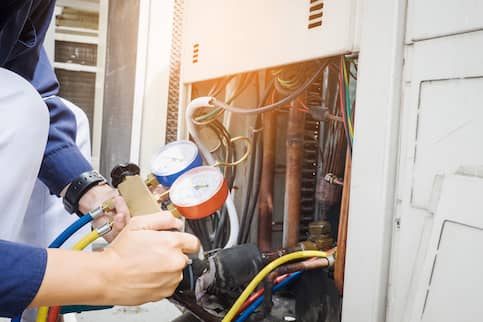Although you can’t take possessions with you when you pass away, you can create a document – a will – with instructions on how and to whom your belongings should be distributed. But you need someone who will ensure that your wishes are carried out. That someone is an executor of estate.
Because the duties of an executor of estate are so important, both appointing one and accepting an appointment should not be taken lightly. Make sure you know what is involved, regardless of whether you are the appointer or appointee.
- As an executor of estate, you have a legal and fiduciary responsibility to carry out the wishes of the deceased as outlined in the will and to act in the beneficiaries’ best interests.
- Acting as executor can be a lot of work, involving paying debts and taxes, handling disputes between beneficiaries, and working with lawyers and other professionals.
- Many states have their own legal requirements that an executor of estate must meet.
What Is An Executor Of An Estate?
An executor of estate is the person designated to ensure the wishes of the deceased (or decedent) are carried out. The executor of estate – also known as a personal representative or executor of will – works from the time of death until probate is complete. During this time, they manage and protect the estate’s assets, pay debts and taxes, and transfer assets to beneficiaries.
What’s Your Goal?
Buy A Home
Discover mortgage options that fit your unique financial needs.

Refinance
Refinance your mortgage to have more money for what matters.
Tap Into Equity
Use your home’s equity and unlock cash to achieve your goals.
What Are An Executor Of Estate’s Responsibilities?
Executors have serious legal and fiduciary responsibilities, which include carrying out the wishes of the deceased as outlined in their will or other documents. To do it, there are several specific steps and actions that must be taken, in addition to the actions unique to the will itself. Not performing certain duties, or failing in fiduciary responsibilities to beneficiaries, can have legal consequences.
If someone has named you their executor of estate, your duties will begin immediately after their death. Here’s a list of actions you’ll need to take:
1. Obtain The Death Certificate
You should request at least 20 certified copies of the decedent’s death certificate, since you’ll need to provide an official copy of the certificate to do things like close bank accounts and file insurance claims.
You can order official death certificates from your state’s vital records office, which can be found through the Centers for Disease Control and Prevention’s online tool. Official death certificate copies typically cost between $10 and $30 per copy for the first copy, then usually cost less for additional copies purchased concurrently.
2. File The Will
One of the first and most important duties you’ll have as executor of estate is to file the will with probate court in order to get a hearing, during which the court should validate the will and officially appoint you as executor.
Some states’ laws require that you notify all beneficiaries, heirs and other interested parties of the probate process before the initial probate hearing, while some allow you to let them know soon after. You may also be required to file proof with the court that you served notice to all the beneficiaries.
In some cases, the decedent may have made an estate plan that avoids probate – for example, assets may be jointly owned or in a trust. But even if you don’t think the estate will need to go through the formal probate process, you’re still required by law to file the will with the local court.
What If There Is No Will?
When someone dies without a will, they have died “intestate.” While laws and procedures vary by state, essentially, the intestate person’s assets are frozen temporarily, and their estate must enter probate court.
The court will determine how and when assets will be distributed and set deadlines for creditors to file claims. The court also has the ability to appoint an administrator, which is its term for an executor of estate.
3. Appear In Court
You’ll have to go to the initial probate hearing and will need to bring a certified copy of the decedent’s death certificate, as well as the original signed will.
If all is in order, and no one shows up to the probate hearing with legitimate challenges, the court will validate the will and you as its executor. You will be given letters testamentary, legal documents certifying that you are legally authorized to act on behalf of the estate.
4. Notify Beneficiaries And Other Interested Parties
If you did not do this when you filed the will with probate court, it’s important that you now notify beneficiaries, creditors and government agencies that the person in question has passed and that their will is now in probate. This is for a variety of reasons.
For instance, creditors should be notified so that interest on the decedent’s debts stops accruing and they are made aware that payments might be delayed. Insurance companies should be notified so bills stop or life insurance policies begin to be processed. The Social Security Administration needs to be notified so benefits can be directed accordingly. And beneficiaries and heirs need to be notified in case they have any disputes with the will’s provisions. The point is, do not assume that any person, business or administration already knows that the person has passed away or what their will asserts.
In fact, the list of entities that you may need to contact is long. These include:
- Family members
- Family attorney
- Social Security Administration
- Post office
- Credit card companies and banks
- DMV
- Insurance companies
- Credit bureaus
- Department of Veterans Affairs, if applicable
- Cell phone, cable and other utility providers
5. Open An Estate Bank Account
It is highly recommended that as executor of estate you open an estate bank account so you can pay final bills, distribute funds to beneficiaries, and pay probate court costs. This might be as simple as a checking account or, for more complex estates, a brokerage account. Either way, you will have to apply for an employer identification number through the IRS website. Although it is labeled an employer tax ID, there is an option for estates.
The dedicated estate checking account allows you to keep detailed records of transactions. This enables you to manage the estate’s money more easily and helps ensure that you perform your fiduciary and legal duties. It is important that you never mix your personal funds with the estate’s.
6. Pay Debts And Taxes
You are responsible for settling any estate debts and paying the decedent’s final taxes. This generally needs to be done before beneficiaries can receive their inheritance. Your responsibility includes paying unpaid bills, such as a mortgage or utility bills, and paying off any outstanding debts in full.
Because tax situations can be complex, we recommend speaking with a tax professional about how to handle the estate’s taxes. Remember, these are all paid out from the estate funds, not your personal funds.
7. Distribute Assets
Once all the estate’s obligations are taken care of and creditors can no longer make claims on the estate, you can begin to distribute the assets as outlined in the will. You may need the court’s permission before you can begin this process. Be sure to get receipts from the beneficiaries acknowledging they received their inheritance.
Ready To Become A Homeowner?
Get matched with a lender that can help you find the right mortgage.
Tips For Estate Executors
Carrying out the many duties of an executor of estate, especially for the first time, can be difficult. You will likely have to navigate situations and entities you have never encountered before.
Unexpected situations can arise, such as disputes with creditors, government agencies or beneficiaries. There are also certain actions an executor cannot take or is not responsible for. Here are some common things all executors of estate should consider.
Consider Hiring An Attorney
Being an executor involves navigating an often-confusing legal system and dealing with complex financial and tax situations. Hiring an attorney can save you time, headaches and possibly money. The estate usually pays for this service.
Know What Estate Executors Can’t Do
As an executor, you must abide by the terms in the will and act in the best interests of the beneficiaries. Therefore, understanding the obligations of an executor is imperative. But knowing what you can’t do as executor is just as essential.
Here’s a list of some actions you cannot take as executor:
- Manage a decedent’s estate before they’ve died. The executor of estate does not have the legal right to make decisions or manage the person’s estate in any aspect before they’ve passed away.
- Manage a decedent’s estate before probate court approval. If your appointment as executor is not sanctioned by the probate court, the bank will prevent you from accessing the decedent’s accounts and investments.
- Carry out a will the decedent hasn’t signed. Even as the executor of estate, you don’t have the authority to sign on the decedent’s behalf. Instead, the estate will be managed according to that state’s laws.
- Change the terms of the will. An executor of estate cannot legally remove a beneficiary from the will or change any provisions in it. Removing them or trying to change the will is a violation for which you could be removed as executor.
Be Prepared To Manage Disputes
During the complex and emotional time following a person’s death, it is only natural that disputes arise, whether they’re between family members, creditors or other entities. As executor of estate, you will often be at the center of them, so having a strategy to deal with disputes is key.
First, understand your legal obligations, as well as the decedent’s wishes as outlined in their will. As the executor, you have a legal and fiduciary responsibility to follow them. This should be explained to anyone challenging your or another’s actions.
Second, communication is central to resolving any dispute. If the estate has an attorney, perhaps they can help explain your actions. If not, mediation is often far less expensive than legal action. The important thing to remember is that you must always act in the best interest of the estate and the beneficiaries.
Don’t Expect The Process To Happen Quickly
As everyone knows, our legal system doesn’t exactly work at warp speed. Unfortunately, probate court – and your legal duties as executor – back that up. Probate court can take anywhere from four months to two years, depending on many factors.
For instance, legal challenges or a person passing without a will can delay proceedings. Needless to say, this is not a rush job. Some other factors that can affect the length of the process include:
- Estate size or complexity
- Number of assets that can be transferred outside of probate
- Challenges to the validity of the will
- Conflicts among family members or beneficiaries
- Issues with real estate titles
- Legitimacy concerns over outstanding debts
- The need to liquefy assets to pay creditor claims
- Tax issues that delay filing the decedent’s final tax returns
Take The First Step To Buying A Home
Find a lender that will work with your unique financial situation.
FAQ
The Bottom Line
Fulfilling the duties of an executor of estate can be a lot of work and should be taken seriously, since it often involves carrying out the final wishes of a friend or family member. If you’re looking to name an executor in your will, be sure you’re choosing someone trustworthy and up to the challenge of managing your estate after you’re gone.
More From Quicken Loans:

Terence Loose
Terence Loose is an award-winning journalist who has held editorial positions at national and regional magazines and served as a content analyst and writer for Netflix. His work has appeared in the Los Angeles Times, The Orange County Register, CNBC, Yahoo and HuffPost, among others. He has also taught writing at UCLA, UC Irvine and Netflix.












